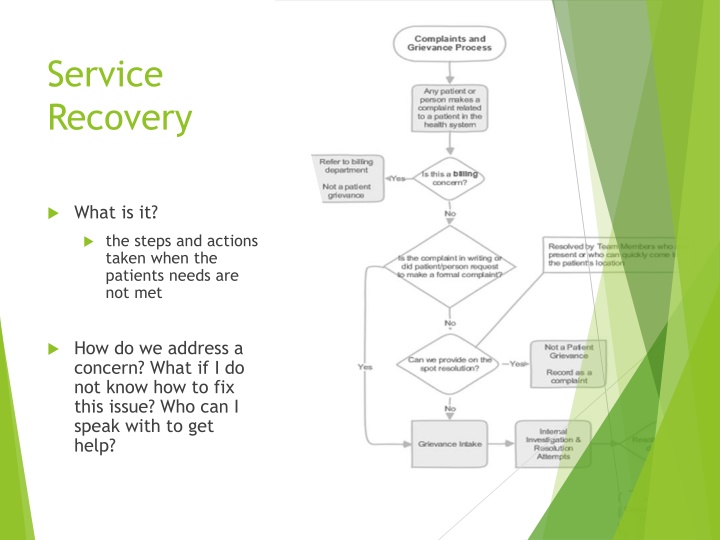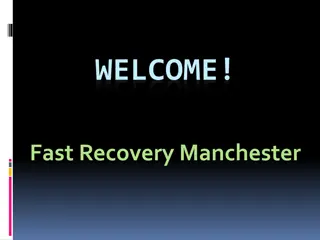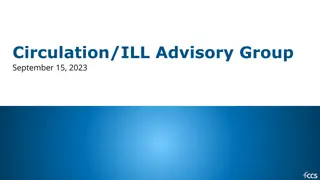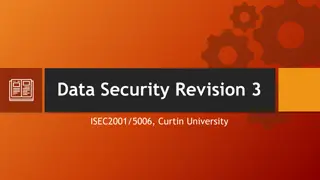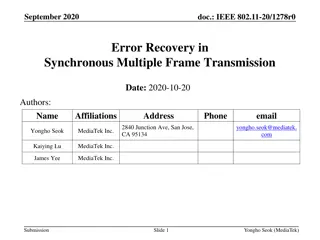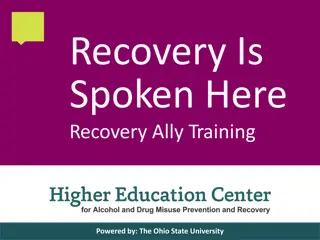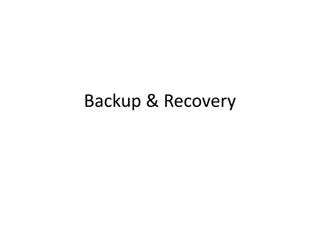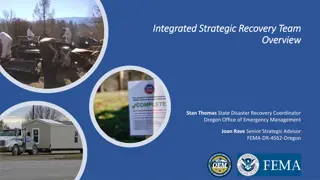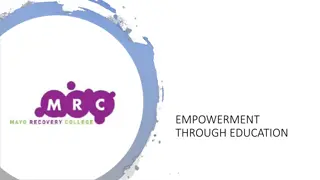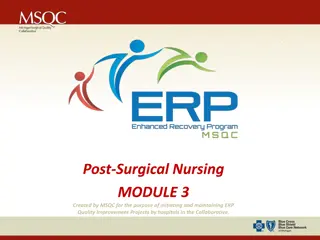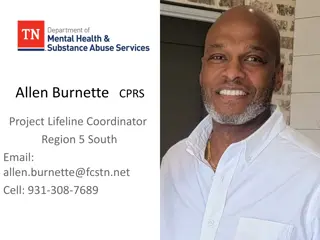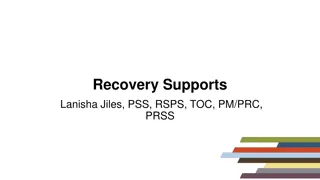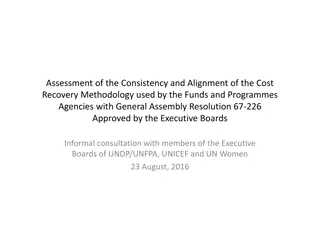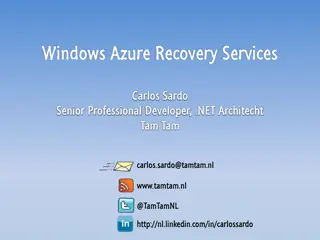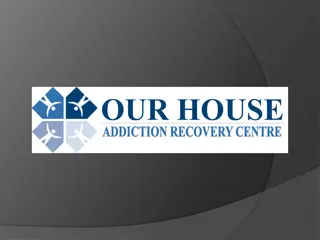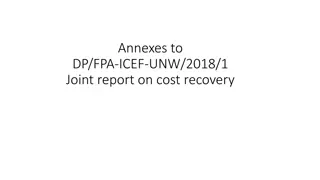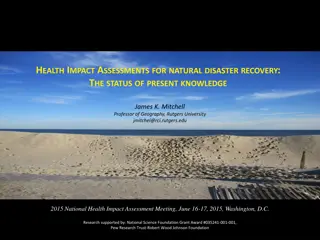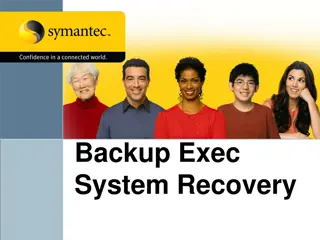Service Recovery
Service recovery is the process of addressing patient needs when they are not met. The steps include recognizing the concern, empathizing, apologizing, connecting and listening, and taking action. If you don't know how to fix the issue, you can speak with a team member trained in service recovery. Utilize phrases like Partnership, Empathy, Apology, Respect, Legitimize, and Support to effectively address concerns. Remember the PEARLS concept for effective communication. Always recognize concerns, empathize with the patient, and offer a genuine apology.
Download Presentation

Please find below an Image/Link to download the presentation.
The content on the website is provided AS IS for your information and personal use only. It may not be sold, licensed, or shared on other websites without obtaining consent from the author.If you encounter any issues during the download, it is possible that the publisher has removed the file from their server.
You are allowed to download the files provided on this website for personal or commercial use, subject to the condition that they are used lawfully. All files are the property of their respective owners.
The content on the website is provided AS IS for your information and personal use only. It may not be sold, licensed, or shared on other websites without obtaining consent from the author.
E N D
Presentation Transcript
Service Recovery What is it? the steps and actions taken when the patients needs are not met How do we address a concern? What if I do not know how to fix this issue? Who can I speak with to get help?
Who do I go to?? Service recovery is the responsibility of every MCHS Team Member. Any MCHS team member who is first to hear or see a complaint, concern, or need, is empowered, and expected, to begin the Service Recovery process immediately by apologizing and begin the process of working to correct the perceived problem.
Heart-Head-Heart Communication Model Head-Head Heart-Heart VALUABLE INFORMATION FEEL IMPORTANT AND UNDERSTOOD ANSWERS & SOLUTIONS CAN UNDERSTAND HEAD- TO-HEAD COMMUNICATION BETTER
PEARLS PEARLS phrases: Partnership: Let s work on this together. Empathy: I can imagine from what you re saying how difficult a time this has been for you. Apology: You ve been waiting an hour to see me; I m really sorry you had to wait so long. Respect: I can see you ve thought this out very carefully by the amount of research you ve done on the issue. Legitimize: Anyone in your situation would feel that way. Support: I ll be with you all the way.
MCHS Service Recovery process R Recognize Concern E Empathize A Apologize C Connect & Listen T Take Action
Recognize Concern Acknowledge there is a concern when one is voiced Look for non-verbal cues (tone of voice; body language) Don t be afraid to ask questions
Empathize The ability to understand and share the feelings of another. See it through their eyes Try to understand the thoughts, feelings and emotions they are experiencing. Let the patient/visitor know you get it
Apologize DO s of an apology Don ts of an apology Use warm, open body language X Use a defensive tone of voice o Make eye contact X Argue o Use your soft voice X Smile inappropriately o Use I statements X Sound like a robot o Be sincere & make eye contact I m sorry this has happened I apologize for your frustration
Connect & Listen Stop and focus on the patient/visitor Listen patiently and non-defensively Try to sit down with the patient to give your full attention and time Ask open-ended questions
Take Action Take ownership of the resolution Explain available options, if appropriate Involve the patient/visitor in the resolution process Follow Through!!!
Its not Our Journey It s the patients and families Ideal Journey is Safe, Secure, Extraordinary.
Did you know? A satisfied patient tells 1-5 people about their experience. A dissatisfied customer tells 10-20 people about their experience. Keeping customers satisfied and providing service recovery when necessary, keeps patients and others coming back.
Feedback is Valuable and Appreciated.. Welcome it! Feedback from our patients is valuable as we review our processes and strive to improve the care and service that we provide. How do we receive feedback? HCAHPS and CG CHAPS Survey Press Ganey Patient Experience Surveys Patient Experience Hotline (2273) Front Line Team Members
We love to hear when you are providing excellent service! ICARE cards are an employee recognition program that is used to recognize employees that are providing excellent service and service recovery. ICARE cards are on every unit and in all areas of the hospital Some ICARE cards are stamped If a stamped ICARE card is filled out for you, Service Excellence will find you with a Starbucks gift card!
Customers do not expect us to be perfect, but as healthcare professionals they do expect us to fix things when they go wrong. How we respond once we know about an issue can turn even a very unpleasant experience into a positive one.
